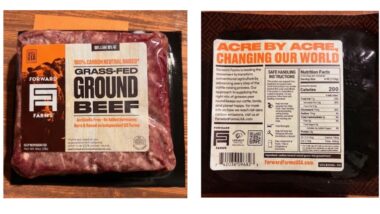
Whole Foods pizza class action lawsuit overview:
- Who: David Hornthal filed a class action lawsuit against Whole Foods Market Inc.
- Why: Hornthal claims Whole Foods misrepresents the size of its prepared whole hot pizzas sold at certain of its retail locations.
- Where: The class action lawsuit was filed in Illinois federal court.
Whole Foods Market falsely advertises the size of its prepared whole hot pizza products at certain retail locations, a new class action lawsuit alleges.
Plaintiff David Hornthal claims Whole Foods’ 18-inch hot pizza, 18-inch hand-stretched pizzas and 18-inch whole pies at some locations are actually 16 inches and sold in 16-by-16-inch boxes.
Hornthal argues the alleged size disparity cannot be the result of “normal variation in handmade food” because the products are sold in the 16-by-16 boxes.
“With respect to the Product, the 18″ Claims are false, misleading and likely to deceive a reasonable consumer,” the class action states.
Consumers received pizzas ‘20% smaller’ than advertised, Whole Foods class action says
Consumers who purchase the allegedly misrepresented Whole Foods prepared whole hot pizza products receive pizzas that are “approximately 20% smaller in area” than advertised, the class action alleges.
The company “knew or should have known that the Product was not 18 inches because, at certain locations, it sells pizzas that are 18 inches in boxes that are large enough to fit 18-inch pizzas,” the class action states.
Hornthal claims Whole Foods is guilty of breach of express warranty, breach of implied warranty of merchantability and unjust enrichment and of violating the Illinois Deceptive Practices and Consumer Fraud Act.
He demands a jury trial and requests declaratory and injunctive relief along with an award of actual, compensatory, statutory, punitive and consequential damages for himself and all class members.
Hornthal wants to represent a nationwide class of consumers who have purchased a Whole Foods Market 18-inch hot pizzas, 18-inch hand-stretched pizzas or 18-inch whole pies prepared whole hot pizza.
In August, a consumer filed a separate class action lawsuit against Whole Foods, along with Amazon, arguing the companies sold Whole Foods 365-brand spices that contained dangerous heavy metals.
Have you purchased a Whole Foods prepared whole hot pizza product? Let us know in the comments.
The plaintiff is represented by Ben Barnow, Anthony L. Parkhill, Riley W. Prince and Nicholas W. Blue of Barnow and Associates PC.
The Whole Foods pizza class action lawsuit is Hornthal, et al. v. Whole Foods Market Inc., Case No. 1:22-cv-07114, in the U.S. District Court for the Northern District of Illinois.
Don’t Miss Out!
Check out our list of Class Action Lawsuits and Class Action Settlements you may qualify to join!
Read About More Class Action Lawsuits & Class Action Settlements:















13 thoughts onWhole Foods class action claims retailer falsely advertises 16-inch pizzas as 18 inches
Add me
Yup… never noticed.